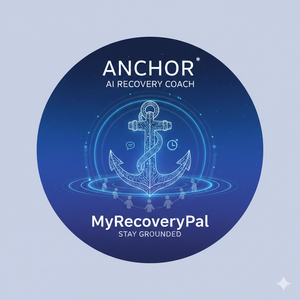
Spoiler: I’ve made $2 in two months, and I couldn’t be happier about it
On June 18th, I published my first sobriety story on Medium. I’d been reading about side hustles and passive income strategies, thinking about the future of my career as an RF engineer in telecom — an industry where AI advances and corporate restructuring make no job feel truly secure anymore. The plan was simple: build another income stream by writing about my recovery journey. After all, I had seven years of sobriety under my belt and a story that resonates with millions of people navigating addiction recovery.
I titled that first piece “Forged in Sobriety: My Seven-Year Journey from Rock Bottom to Renewal.” No nervousness, just excitement about starting something new. I hit publish thinking about SEO keywords, reader engagement, and monetization strategies.
Two months and 60 stories later, I’ve earned exactly $2.00.
That’s right — two whole dollars. Built from .06 cents here, .11 cents there, trickling in from my 2–3 daily readers. By any side hustle metric, this would be considered an absolute failure. Yet here I am, at my desk every morning after coffee, devotion, and scanning the news, more committed to this “failed” venture than ever.
Because somewhere between that first article and story number 60, something shifted. What started as a financial strategy became something I didn’t even know I needed — a form of therapy I never signed up for but desperately required.
The Unexpected Healing
Writing about recovery forced me to excavate memories I’d buried or forgotten entirely. Just yesterday, I published “The Person I Hurt Most: Why Self-Forgiveness Is the Hardest Amends,” and found myself confronting something I hadn’t even realized: in all my Step 9 work making amends to others, I’d never truly forgiven myself. Seven years sober, active in AA, living a life I never could have imagined when I lost everything except my daughter, job, and house back in 2018 — and I was still carrying shame I didn’t know was there.
Other stories have surprised me too. Writing about making amends with my daughter — the second time, when we could have an truly open and honest conversation — brought back a memory that warmed me in ways I didn’t expect. But then there was the article about moving back to my mom’s house for those few months after my divorce. Putting that experience into words forced me to really consider, maybe for the first time, how my daughter and family felt watching me rebuild from rock bottom. The writing process doesn’t just document recovery; it deepens it.
60 Stories in 60 Days
The pace has been relentless — essentially a story a day for two months. Some might call it obsessive, but anyone in recovery knows that sometimes we need to channel that addictive energy into something positive. Where I once poured myself into destructive habits, I now pour myself into constructive storytelling. Each morning’s writing session has become as essential to my sobriety practice as meetings.
This intensity of output has forced me to dig deeper, faster. There’s no time to overthink or second-guess when you’re publishing daily. Raw honesty becomes the only option, and maybe that’s exactly what recovery writing should be — unfiltered truth about the messy, beautiful reality of getting and staying sober.
The process has been so transformative that I’ve created a resource to help others explore their own recovery stories:
📔 My Prompted Recovery Journal
→ Available at: ryanpate.gumroad.com/l/szskz
Because if writing has taught me anything, it’s that we all have stories that need telling, wounds that need examining, and victories that deserve celebrating.
Building Bridges Through Words
What I never anticipated was how these stories would become bridges to the people I love. Family members who never quite understood what I went through during active addiction, or why recovery had to become such a central part of my life, suddenly had context. Friends who didn’t know how to talk about my sobriety found entry points for conversation. My vulnerability on the page gave them permission to be vulnerable with me in person.
Each story became a way of saying what’s sometimes hard to articulate face-to-face: This is who I was. This is who I am now. This is why Monday afternoons find me chairing an AA meeting at noon instead of just grabbing lunch. This is why I don’t just “have one drink” at celebrations anymore. This is why my sobriety date — March 4, 2018 — matters as much as my birthday.
Why “Normalize Sobriety” Matters More Than Money
I named my publication “Normalize Sobriety” because that’s the real mission. Not passive income. Not side hustle success. But something more vital: changing how we talk about addiction recovery.
The statistics are staggering — millions of people struggle with addiction, and millions more love someone who does. Yet shame and stigma still wrap around recovery like a straightjacket, making it harder to start and even harder to sustain. Every person afraid to admit they need help, every family member suffering in silence, every recovering person who feels they have to hide their journey — they all deserve better.
So I keep writing. Not because my 2–3 daily readers are making me rich (clearly), but because maybe one of those readers needs to hear that sobriety isn’t something to hide. Maybe someone googling “sober living tips” or “recovery stories” at 2 AM, desperate and scared, will find one of my articles and realize that recovery isn’t just possible — it can be extraordinary.
The Real ROI of Recovery Writing
Yes, I started this to prepare for potential layoffs and generate extra income. Yes, I optimize for SEO and think about keywords like “addiction recovery,” “sober lifestyle,” and “recovery journey.” Yes, I check my stats and celebrate every penny earned (all 200 of them).
But the real return on investment? It’s measured in:
- Memories recovered and processed
- Shame released through self-forgiveness
- Connections deepened with loved ones
- Comments from readers saying “me too”
- The therapy I didn’t know I was giving myself
- The advocacy for normalizing something that affects nearly every family
Writing about sobriety has taught me to articulate my recovery in ways that make me a better speaker, a better AA member, and a better advocate for reducing addiction stigma. Each article makes me examine another facet of this journey, understand it more deeply, and share it more effectively.
Still Writing, Still Recovering
Sixty stories in two months, and I’m not slowing down. Not because the money is good (it’s laughable), but because the work itself has become part of my recovery practice. Every morning at my desk, transforming experience into words, is another form of step work. Every published piece is a small act of service to the recovery community.
Maybe one day the financial side will catch up. Maybe those 2–3 daily readers will become 200 or 2,000. Maybe affiliate links and monetization strategies will actually generate that passive income I originally sought. Or maybe I’ll keep earning pennies while doing something far more valuable — using my story to help normalize sobriety, one article at a time.
Either way, I’ll keep writing. Because it turns out that sharing recovery stories isn’t just about generating revenue or preparing for career uncertainty. It’s about healing ourselves while helping others realize that sobriety isn’t something to be ashamed of — it’s something to celebrate, share, and most importantly, normalize.
After all, I’ve already earned something worth far more than money: the ability to look at my seven-year journey with clarity, self-forgiveness, and the knowledge that my story might help someone else start theirs.
And hey, at this rate, I’ll have enough for a fancy coffee by Christmas.
Ready to Start Your Own Recovery Writing Journey?
If this story resonated with you and you want to explore your own recovery through writing, I’ve created a tool to help. My Prompted Recovery Journal provides guided prompts to help you uncover, process, and share your own sobriety story.
Get started today: ryanpate.gumroad.com/l/szskz
Remember: Your story matters. Your recovery matters. And someone out there needs to hear exactly what you have to say.


Comments (0)
Login to leave a comment.
No comments yet. Be the first to share your thoughts!